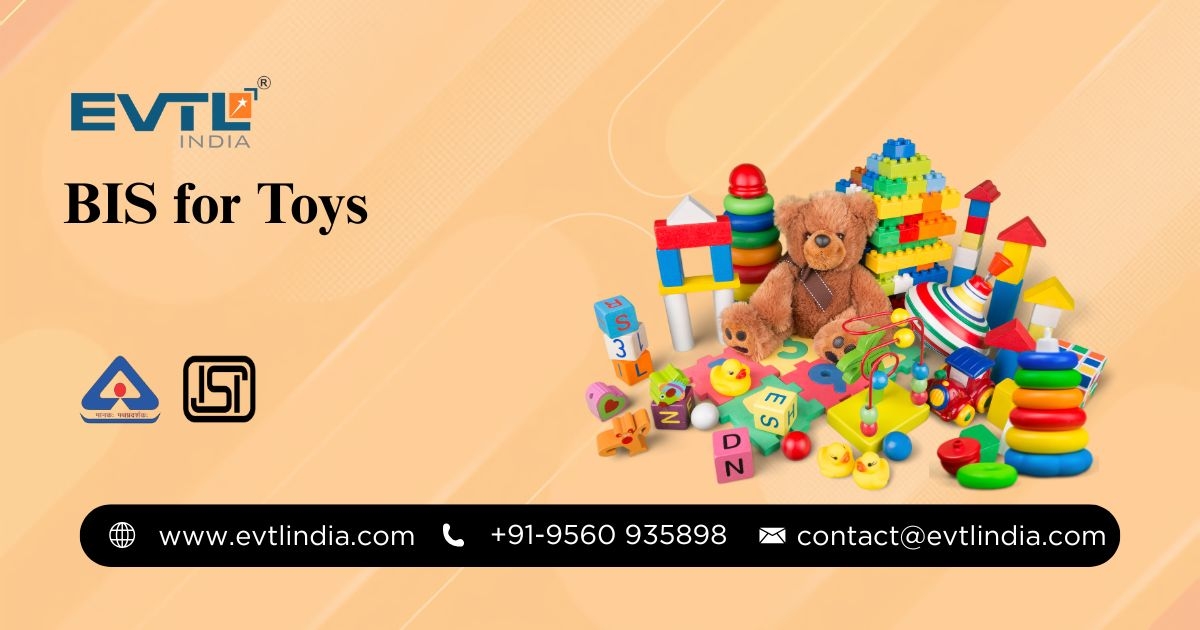Toys are an essential part of childhood, shaping creativity, learning, and joy. However, unsafe toys can pose serious risks to children’s health and safety. To address these concerns, the Bureau of Indian Standards (BIS) introduced mandatory certification requirements for toys in India. This ensures that every toy sold in the Indian market meets strict safety and quality benchmarks. BIS certification for toys, coupled with the ISI mark, has become the hallmark of trust for manufacturers, importers, and consumers alike.
Why BIS for Toys Matters
The BIS for toys is not just a regulatory requirement but also a protective shield for children. Toys often contain small parts, paints, plastics, and electronic components, all of which need to comply with health and safety standards.
Key reasons BIS for toys is important:
-
Safety Assurance: Prevents choking, toxic material exposure, and sharp edges that can harm children.
-
Consumer Trust: Parents feel confident when buying toys carrying the ISI mark for toys.
-
Market Access: BIS certification is mandatory for both domestic manufacturers and importers, enabling smoother entry into Indian markets.
-
Legal Compliance: Avoids penalties, product recalls, or bans imposed by authorities on uncertified toys.
Understanding BIS Certification for Toys
The BIS certification for toys is mandatory under the Toys (Quality Control) Order, 2020, issued by the Government of India. Whether toys are manufactured domestically or imported, they cannot be sold without a valid BIS license.
There are two primary certification schemes for toys:
-
ISI Certification for Toys (Scheme I – Conformity Assessment):
-
For non-electric toys and certain categories of electrical toys.
-
Focuses on product testing, manufacturing process evaluation, and surveillance.
-
Products that meet Indian Standards are granted the ISI mark for toys.
-
-
Compulsory Registration Scheme (CRS):
-
Applicable mainly for electronic toys requiring BIS registration.
-
Manufacturers must get their products tested at BIS-recognized labs and register with BIS.
-
Both schemes ensure that toys are safe, durable, and compliant with Indian Standards before they reach children.
ISI Mark for Toys: Symbol of Trust
The ISI mark for toys is a stamp of approval that every manufacturer strives to achieve. It reflects that the toy complies with Indian Standard IS 9873 (Safety Requirements of Toys) and, for electronic toys, IS 15644.
Benefits of ISI mark for toys include:
-
Consumer Confidence: Parents can easily identify certified products.
-
Brand Credibility: Enhances reputation in both domestic and export markets.
-
Competitive Advantage: ISI-certified toys stand out in a highly competitive industry.
Thus, ISI certification for toys is not only a regulatory requirement but also a marketing tool for manufacturers.
Step-by-Step Process for BIS Certification for Toys
-
Identify Applicable Standards: Determine whether your toys fall under IS 9873, IS 15644, or other relevant standards.
-
Select BIS Scheme: Choose between ISI certification or CRS, depending on the toy type.
-
Testing: Submit samples to BIS-recognized laboratories for safety and quality testing.
-
Application Submission: File the application with BIS, including factory details, manufacturing process, and test reports.
-
Factory Inspection: BIS officials conduct an on-site inspection to verify compliance.
-
Grant of License: Upon successful evaluation, BIS issues certification and permits the use of the ISI mark for toys.
-
Ongoing Surveillance: BIS conducts periodic inspections and product testing to maintain certification validity.
Role of BIS Consultants for Toys
Navigating the certification process can be complex, especially for manufacturers unfamiliar with BIS regulations. This is where a BIS consultant for toys becomes invaluable.
How a BIS consultant helps:
-
Application Support: Assists in preparing accurate documentation for BIS submission.
-
Technical Guidance: Ensures products meet required Indian Standards before testing.
-
Time Efficiency: Speeds up the certification process by avoiding common mistakes.
-
Compliance Updates: Keeps manufacturers informed about changes in BIS regulations.
Hiring a professional BIS consultant for toys reduces delays, ensures compliance, and allows manufacturers to focus on production and innovation.
Challenges in BIS Certification for Toys
Despite its benefits, obtaining BIS certification is not always straightforward. Some challenges include:
-
Technical Testing Requirements: Toys must pass rigorous testing, which may require design changes.
-
Documentation Complexity: Manufacturers often struggle with technical forms and regulatory paperwork.
-
Time and Cost: Certification can be time-consuming and involve significant expenses for testing and inspection.
-
Frequent Updates in Standards: Keeping up with revised Indian Standards can be challenging for small manufacturers.
Overcoming these challenges often requires professional assistance and a proactive approach.
Conclusion
EVTL India is one of the leading BIS Consultant in India, helping manufacturers obtain their BIS licences hassle-free. The toy industry in India is booming, but with it comes the responsibility of ensuring child safety. The BIS certification for toys and the ISI mark for toys act as guardians of quality, preventing unsafe products from entering the market. For manufacturers and importers, compliance is not just mandatory but also a powerful tool to gain consumer trust and market credibility.
Working with a reliable BIS consultant for toys can make the certification process smooth, efficient, and hassle-free. In the end, certified toys not only meet legal requirements but also guarantee what matters most—safe and joyful play for children.


